Abstract
Significance testing plays a prominent role in behavioral science, but its value is frequently overestimated. It does not estimate the reliability of a finding, it does not yield a probability that results are due to chance, nor does it usually answer an important question. In behavioral science it can limit the reasons for doing experiments, reduce scientific responsibility, and emphasize population parameters at the expense of behavior. It can, and usually does, lead to a poor approach to theory testing, and it can also, in behavior-analytic experiments, discount reliability of data. At best, statistical significance is an ancillary aspect of a set of data, and therefore should play a relatively minor role in advancing a science of behavior.
Full text
PDF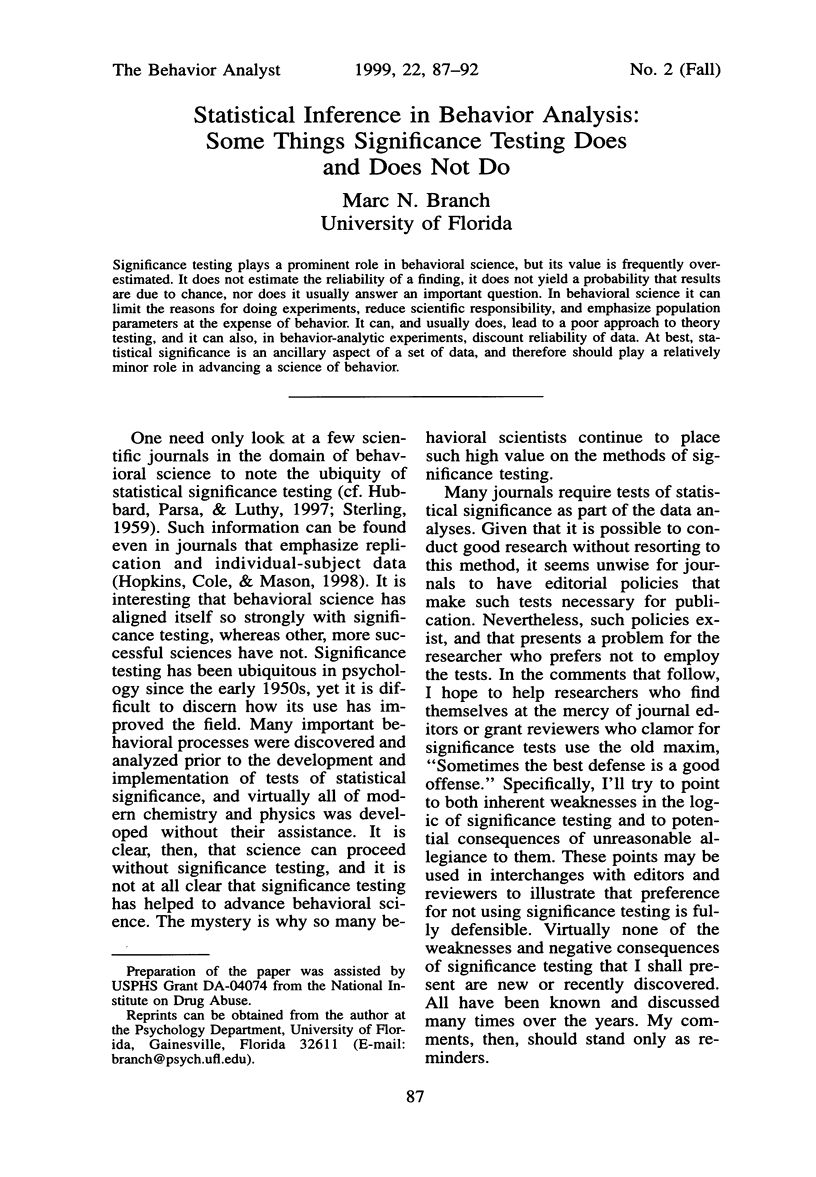
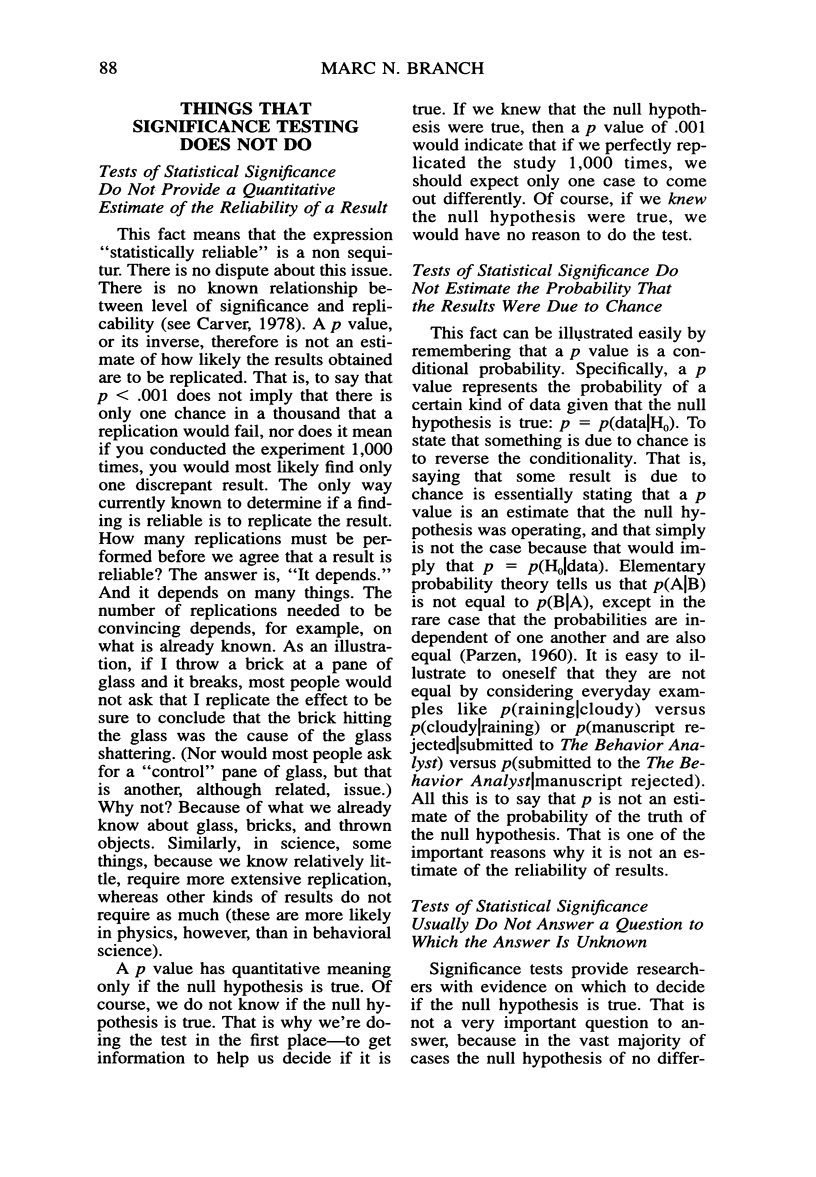
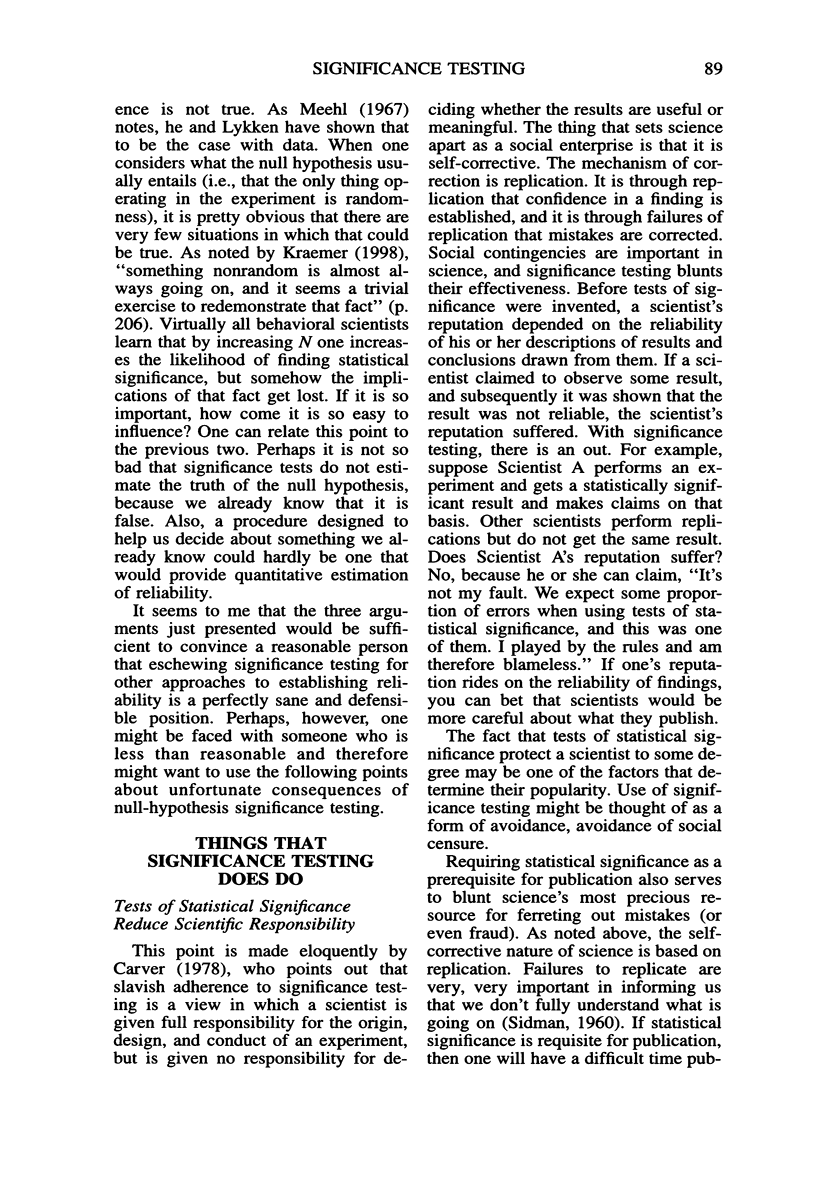
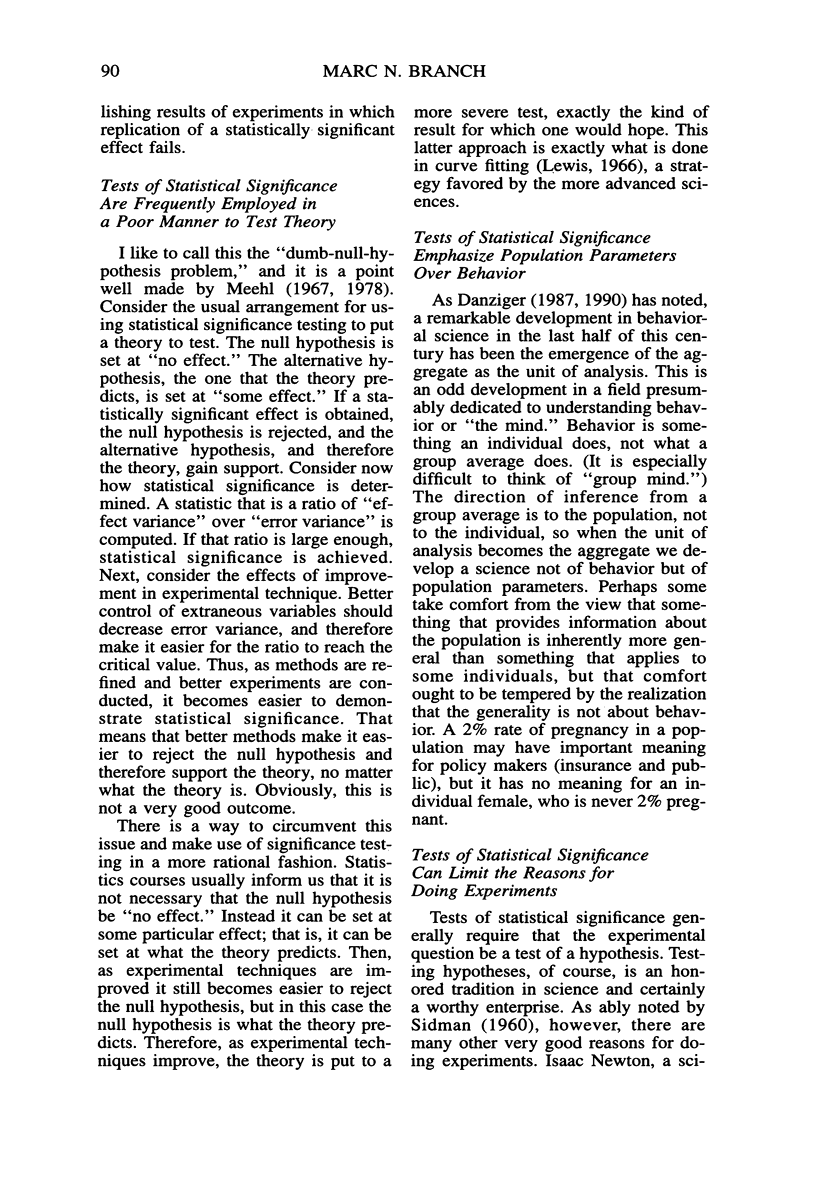
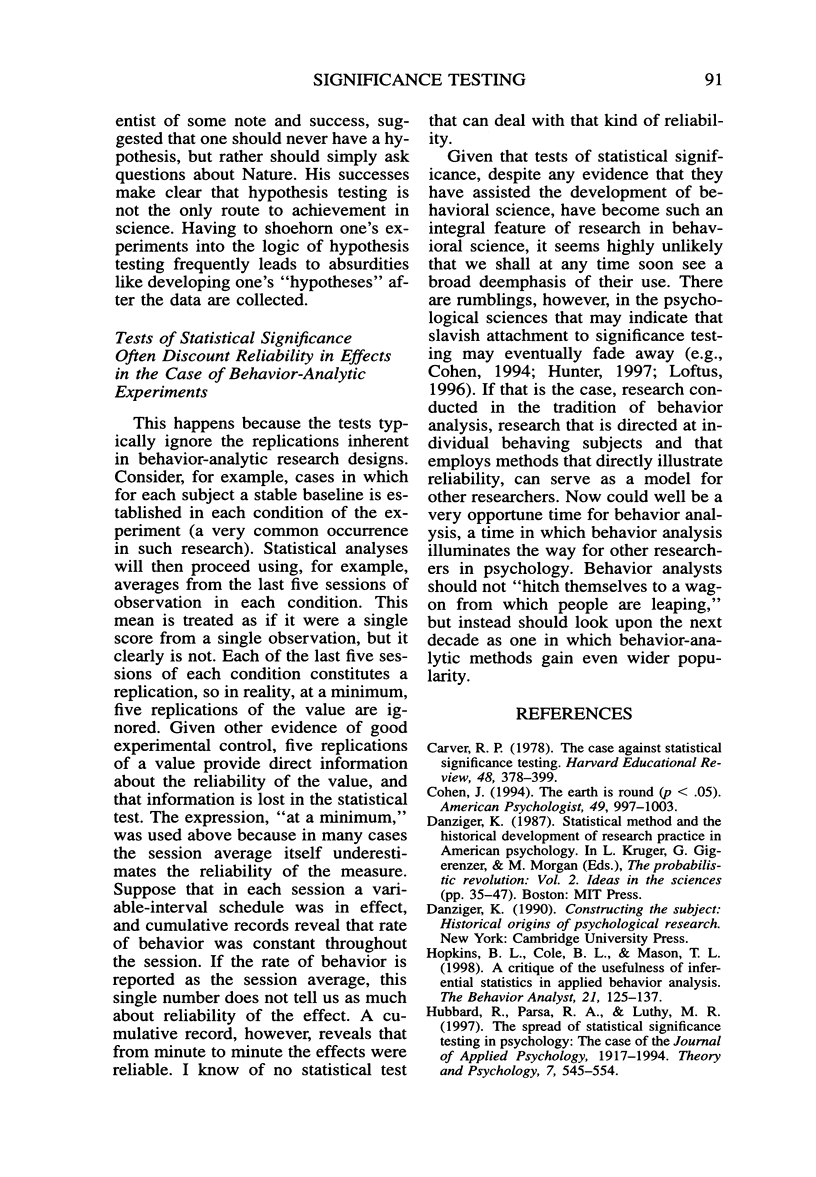
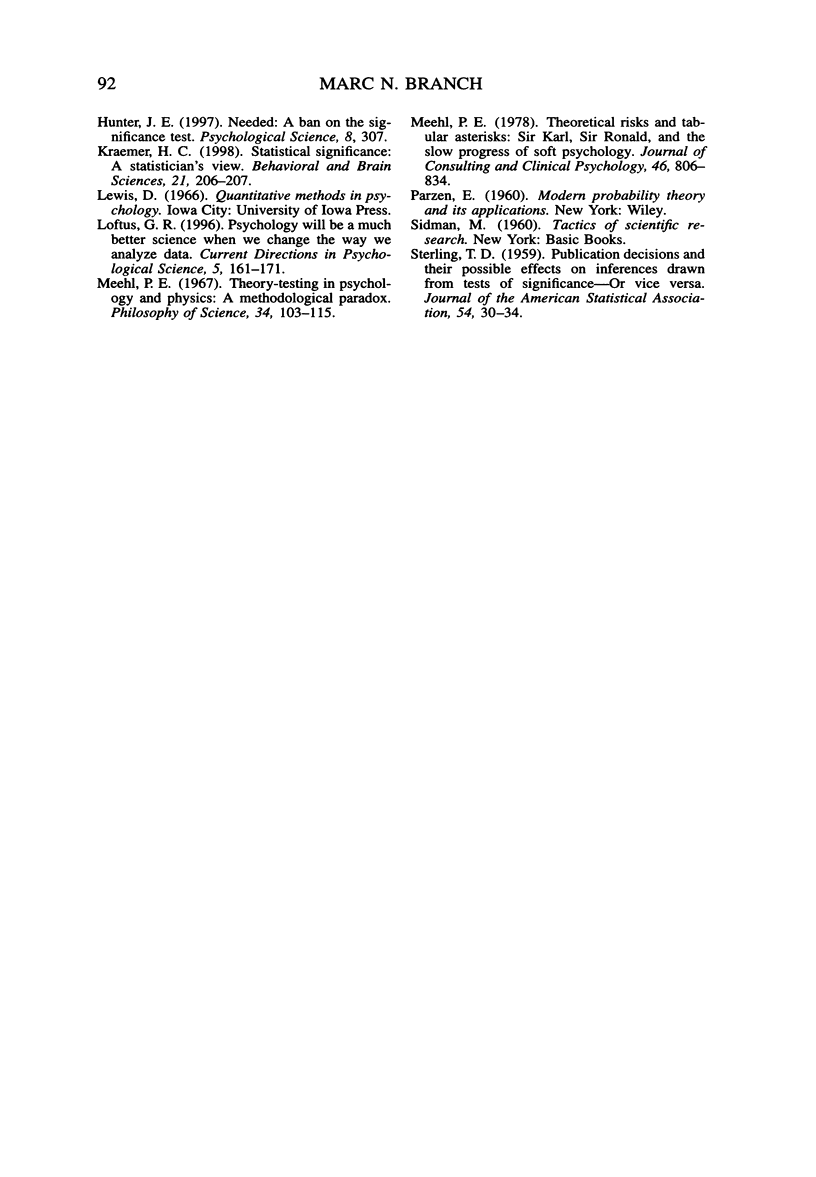
Selected References
These references are in PubMed. This may not be the complete list of references from this article.
- Hopkins B. L., Cole B. L., Mason T. L. A critique of the usefulness of inferential statistics in applied behavior analysis. Behav Anal. 1998 Spring;21(1):125–137. doi: 10.1007/BF03392787. [DOI] [PMC free article] [PubMed] [Google Scholar]


